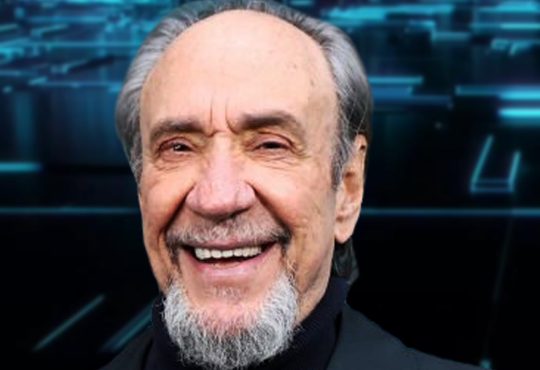‘Loki’ Episode 4 Recap: Back to the Office
A review of this week’s Loki on Disney+, “The Nexus Event,” coming up — just as soon as a prince tells me how the real world works…
And that, folks, is what all that setup was for.
The first two episodes of Loki at times seemed to be straining mightily under the weight of the exposition Owen Wilson and Tom Hiddleston were asked to deliver about how the TVA works, what happens to variants, how this Loki is different from the one who died in Infinity War, etc., etc., etc. Last week’s episode, while marvelous, also had to put the season’s main story entirely on hold so we could gain a deeper understanding of Sylvie and the bond she has with our Loki. So Michael Waldron and company arguably devoted half of this brief season to setting up the world, the characters, and the stakes while not a lot was happening overall, trusting that the sheer chemistry between these actors (and, to a lesser extent, the alluring weirdness of the production design) would be enough to keep viewers engaged until they could start paying things off.
That sort of deliberate storytelling is a delicate thing. Do it right and you have something like The Wire, Breaking Bad, or even the most recent season of For All Mankind: The early chapters seem a bit slow but entertaining enough, and then when the plot really starts to move, everything feels so much more rewarding because of the time the creative team invested putting the pieces in place. Do it wrong and you have, well, the great majority of dramas of the streaming era (including most of the pre-Feige Marvel shows): slowness used to pad the story rather than enhance it, and an endgame that makes the whole feel like less than the sum of the series’ parts, rather than more.
Endings in general are not a Feige specialty, based on most of the MCU movies’ climaxes and the muddled finales to WandaVision and Falcon and the Winter Soldier. But even if Loki stumbles in its conclusion in a few weeks, we will still have “The Nexus Event,” a thrilling, poignant hour of TV that offered that familiar, reassuring sensation of making everything that came before feel more important as a result of it.
Where “Lamentis” was almost exclusively about Loki and Sylvie, “The Nexus Event” takes us back into the heart of the TVA offices, bringing Mobius, Ravonna, and Hunter B-15 back onstage. We travel back in time to see that Sylvie was, indeed, a princess of Asgard, but abducted at such a young age by then-Minuteman Ravonna that she barely remembers it. We don’t find out what Sylvie’s original scheme was to take down the Time-Keepers, but for the moment it doesn’t matter, for two reasons. The first is that simply telling people like Mobius and B-15 that they are kidnapped, brainwashed variants themselves is enough to seriously disrupt the functions of this place. And the second is that the Time-Keepers are every bit as ridiculous and fake as Loki suggested when he first came to the TVA: animatronic Hall of Presidents rejects, or a slightly fancier version of the Wizard of Oz’s fake floating green head. It’s all a lie, and it takes the combined force of two gods of lying to reveal it as such.
It’s definitely a truthful hour for Loki and Sylvie, even when it’s just the two of them sitting on parallel rocks on Lamentis, as they wait for the world to literally crash into them. Sylvie fills in details of her backstory that she only alluded to last week, and wonders if the defining trait of any Loki is that they’re destined to lose. This is something of a meta realization, since the Marvel version of Loki was created entirely as a foil for Thor, and all comic-book villains are ultimately there to make the heroes look good. But as Loki himself counters, they may often lose, sometimes painfully, “But we don’t die. We survive.” Yes, the Sacred Timeline iteration that Loki — assuming we should even believe that any one timeline is more important than the others, which seems not at all a safe assumption at this stage — got choked to death by Thanos, and other variants, have been pruned by the TVA. But there will always be a Loki — and at the moment, there are a whole bunch, which we’ll get to shortly.
Tom Hiddleston would probably generate onscreen sexual tension with a hat rack, so it’s no surprise that the two Lokis begin relating to each other in a way that sets off an unprecedented Nexus Event alarm back at the TVA, saving them in the process. Mobius is dismissive of Loki’s feelings for Sylvie, declaring it the ultimate example of his narcissism: “You fell for yourself!” But Mobius at that point is feeling hurt and betrayed by the man he genuinely believed to be his friend. On the one hand, Loki falling in love with his female counterpart is narcissistic (and perhaps squirm-inducing depending on how Asgardian DNA works). On the other, Loki is also something of the god of loneliness, with his need for attention and approval leading him to do things that ironically push people away from him. In that context, finding a connection with anyone — and particularly someone who understands everything about what makes him tick — feels more like a miracle to be cheered than a fetish to be mocked.
Loki spends a good chunk of the episode in a time cell, caught in a loop where Lady Sif repeatedly knees him in the groin*, punches him, and tells him that he deserves to be alone, and always will be. Loki has a history in the MCU films of only being able to channel his best self when he has been brought lowest, like when he and Thor finally bond as brothers and fight together to save Asgard in Thor: Ragnarok, but only after Loki (and Thor, for that matter) is first made a prisoner and puppet of the Grandmaster’s games. As the eternal torture continues here, he finally acknowledges that Sif and everyone else is right about him and, for at least one iteration of the loop, is able to spare his genitals further abuse, even though Sif still insults him.
* Homer Simpson: “Last week’s episode had heart, but Loki getting kneed in the groin had Loki getting kneed in the groin.”

Mobius (Owen Wilson) and Sylvie (Sophia Di Martino) in Marvel Studios’ Loki, exclusively on Disney+. Photo by Chuck Zlotnick. ©Marvel Studios 2021. All Rights Reserved.
Chuck Zlotnick
Sylvie, meanwhile, is similarly brought low by her captivity, and particularly by the moment where she asks Ravonna what her Nexus Event was, in an attempt to understand why she has spent most of her life as a fugitive of the TVA. Ravonna — revealed to be not a well-meaning bureaucrat, but very much on board with whatever fascist agenda is truly behind the TVA — smirks and admits she doesn’t even remember. To Sylvie, this is the most important thing that ever happened to her. To Ravonna, it was just another annoying day at the office.
Despite their diminished circumstances, our heroes are able to convince both Mobius and Hunter B-15 that they are also variants. Mobius gets “pruned” on Ravonna’s orders right as he and Loki are plotting to take down the Time-Keepers. It’s a genuinely shocking development (that incited a stream of all-caps obscenities in my notes), because this seems the exact moment when things start working well for all the good guys, and also because you don’t generally hire Owen Wilson for his first TV show and kill him off two-thirds of the way through the season. Most likely, Mobius is less dead than he appears, what with Loki re-emerging from his own pruning during the episode’s mid-credits scene. But if that is somehow it for the character, the show really did get great value out of Wilson, not only in the banter with Hiddleston, but in the way that he helped put a human and relatable face on the show’s larger questions about identity and free will. Who is Loki if he is always destined to be Thor’s enemy? Who is Mobius if his entire life has been a lie? Who is Sylvie if she could have spent a lifetime on Asgard? It’s chilling and sad that he’s gone, at least for now, but what a moment.
Hunter B-15 proves more useful, freeing both Lokis before being knocked out by two other Minutemen. This sets up an homage to (or, if you’re less charitable, shameless rip-off of) the iconic throne-room fight from The Last Jedi, with Loki and Sylvie back to back as they take on Ravonna and the Minutemen before discovering the truth about the Time-Keepers. It’s thrilling, and then funny to see Loki studying the chintzy pieces of the decapitated Time-Keeper robot, and then we get our second shocking pruning — this time of Loki himself, courtesy of Ravonna.
There is, of course, a world where the series could have just left him dead. Hiddleston is a busy man, and recentering the show around Sylvie would not be a lie, but a passing of the torch like Sam Wilson becoming the new Captain America. Sophia Di Martino would still be playing the titular role, and she’s been so charismatic — and so evocative of Hiddleston, while clearly making the role her own — that it would probably work.
But while Sylvie is preparing to interrogate Ravonna, the end credits are interrupted by the male Loki waking up in a ruined city, to be greeted by three more variants, who are billed as follows later in the credits: Classic Loki (Richard E. Grant, dressed in the Jack Kirby costume from the Sixties comics), Kid Loki (Jack Veal, dressed similarly to how Kid Loki looked in more recent comics), and Boastful Loki (DeObia Oparei, dressed in more traditional Asgardian clothes and carrying a hammer that looks like it was built out of railroad parts), plus some kind of Alligator Loki resting on Kid Loki’s lap. When Loki wonders if he’s dead, Classic Loki warns him that he isn’t yet, “But you will be unless you come with us.”
The delight there is less about Loki being spared (and probably Mobius as well, by transitive property of plot twists) than about these new/old variants. What’s the fun in doing a show in this setting, with these themes, if you’re not going to introduce as many different weird versions of the main character as possible? They’re only onscreen for a few seconds here, but the comedic and dramatic possibilities they represent seem as limitless as the TVA’s power.
By moving so carefully to this stage, the creative team (Kate Herron again directed, and Eric Martin wrote the script) is leaving a lot to be dealt with in the final two hours, not least of which is who is really pulling the TVA’s strings. (Kang seems the obvious guess, since he’ll be the villain in the next Ant-Man movie, but I might put my money on Immortus, who is himself something of a Kang variant and has a comic-book history with the Time-Keepers.) It may all fall apart by the end, or just conclude with another generic fight scene. But for the moment, Loki is doing exactly what a serialized drama should be doing, and it’s firing on all cylinders. What a joy this was.
Some other thoughts:
* Jaimie Alexander is oddly not credited anywhere in the episode, not even in the list of all the actors that appears right as Disney+ tries to recommend something else for you to watch. This occasionally happens if an actor is under contract to another show and gets special dispensation to guest star elsewhere, but Blindspot has been over for more than a year now, so this is a mystery.
* Also odd: Some weeks (like this one), the Marvel Studios logo sequence is accompanied by the familiar fanfare, and in others, a song plays over those familiar images of Steve, Tony, and friends.
* Finally, while checking the credits of this week’s new guest stars (including Cailey Fleming as the young Sylvie), I was amused to discover that DeObia Oparei already played a character named Loki on a couple of episodes of Netflix’s Santa Clarita Diet. Time is a flat circle, and all that.
Missing Out on MCU Easter Eggs? Here’s Every Marvel Movie to See Before Watching ‘Loki’







